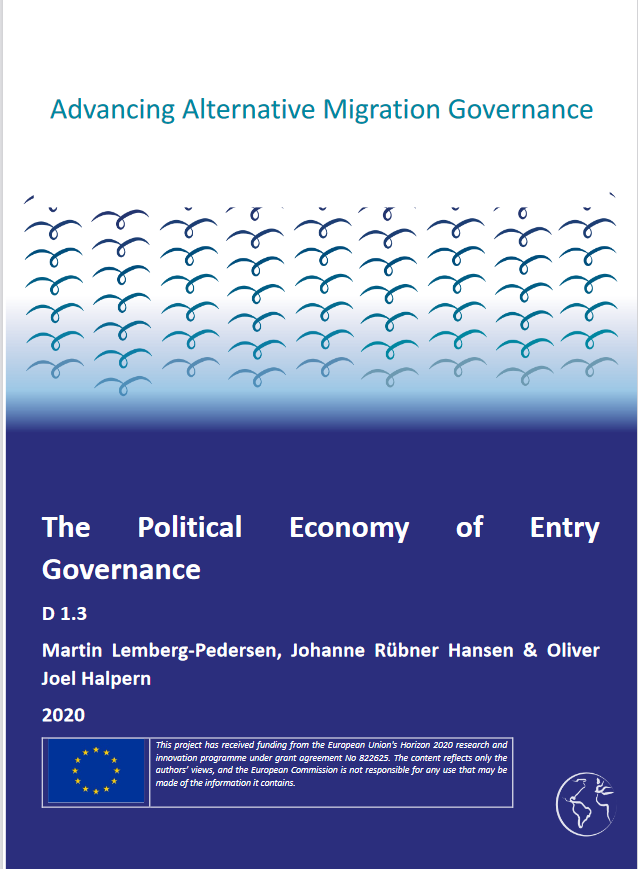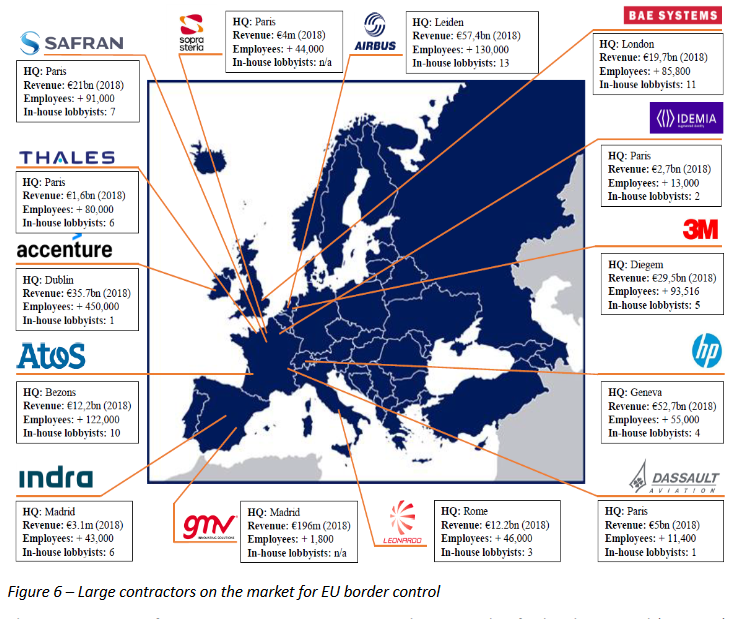Political Economy of Entry Governance

The entry of migrants has been the focus of public, political and technological discussions and initiatives within the EU. Underpinning entry to the EU level are practices of enforcement and infrastructures of border control. Some are physical, like border guards, others, such as biometric databases and maritime surveillance systems are digital and technological. At the level of public and political discourse, border technologies and new security systems are often portrayed as a panacea to deal with irregular border crossing and political discussions about immigration in European societies. However, the assumption that border control systems constitute neutral technological fixes disregards not just that they constitute interventions against inherently political problems, but also that the systems themselves are produced through political and economic processes. Consequently, this deliverable is founded on the outlook that any careful analysis of EU entry governance needs to take into account the political economy of border control practices, and how they can be shaped by concerns other than about migration, and by other actors than the public bodies and institutions of the EU or its Member States.
This report details how private and commercial actors also yield a crucial influence on the development, adoption and implementation of EU measures related to immigration. It is based on the assumption that in order to provide the general public and policy-makers with tools to pursue a sustainable and forward-looking policy on migration, the supply-chain of border technologies, functions and infrastructures must be acknowledged. The same is the case for the way in which it features in the processes of multileveled EU border governance, and how commercial actors are positioned and positioning themselves on a profitable market for EU border control that is worth billions of euro. This perspective on border control challenges standard assumptions which privilege the territorial unit of the nation-state, or the stated self-image of the EU as a supranational area of freedom, security and justice.
In order to fulfill this goal, this deliverable providesa mapping of the political economy of EU entry governance, realized through a database developed for the purpose, and analysis of the data generated by it. This enables the identification and discussion of some of the key actors, processes and networks of this political economy at the level of the EU through key illustrations provided by two central policy drives which have evolved in European border control during the last decades, namely: Interoperability and space surveillance for border control purposes. While a focus on these two themes is not exhaustive, it is argued to be able to demonstrate dynamics, silences and criticism, which needs to be addressed in EU entry governance.

| Full title | The Political Economy of Entry Governance |
|---|---|
| Author | Unspecified |
| Publisher | Copenhagen: Aalborg University |
| Year | 2020 |
| Media type | |
| Link | https://admigov.eu/upload/Deliverable_D13_Lemberg-Pedersen_The_Political_Economy_of_Entry_Governance.pdf |
| Topics | European Agencies (Frontex, GIZ & Co), Border and Surveillance Technology & Industry |
| Regions | Europe |